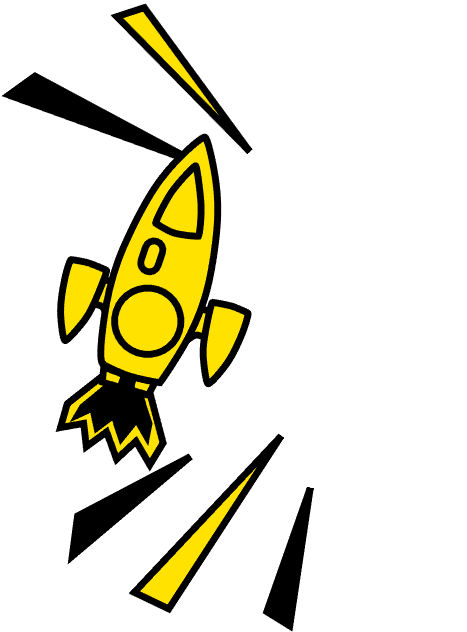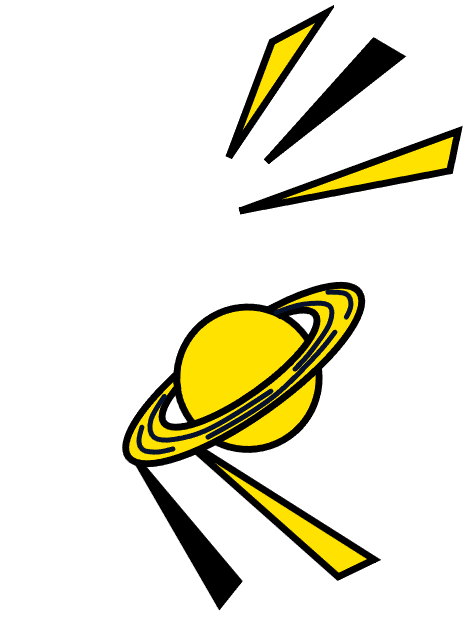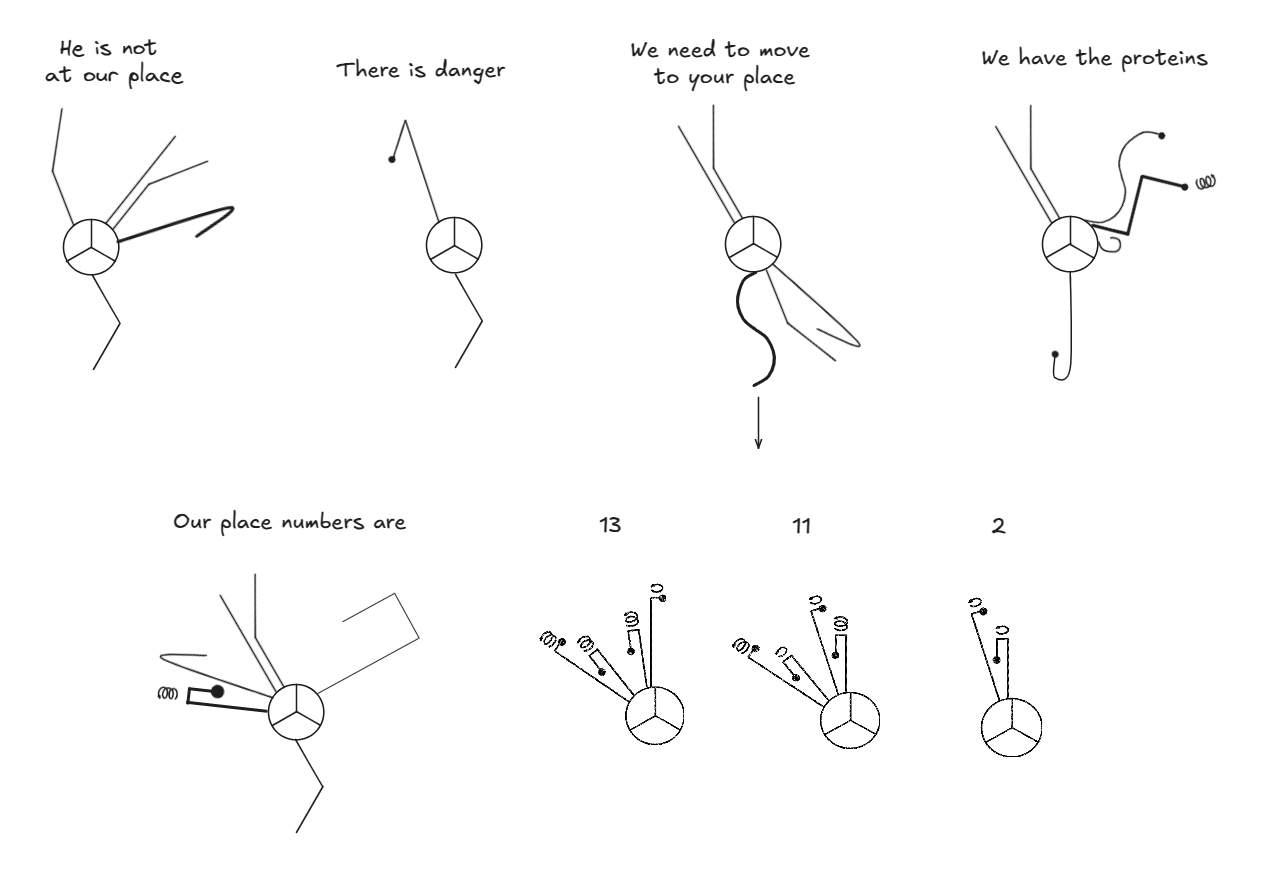

The Transmission
Solution
Note that some parts of this puzzle are written in strange glyphs. Throughout the Captain's Office round, we will need to deduce the meaning of the glyphs from context and realize these are in a constructed language with its own vocabulary, grammar, and number system. The language is called Blobbish, and it is used by an alien race called the Podomorphs, who Captain Houston has been communicating with.
Here is a full guide to the Blobbish language: A Primer on Blobbish for Earthlings, but note that it may contain spoilers for the entire round.
The key insight is that examples of the language that we have seen so far are the Captain’s transcriptions of the podomorph's actual language, which is a sign language. We need to translate the video and respond appropriately. Here’s a transcription of the video.

Here’s a decoding of the video.
| Sign | Subject | Verb | Object |
|---|---|---|---|
| 1 | You | have | What life? |
| 2 | You | Did not communicate with us (1+3pp) | |
| 3 | You | Must communicate | Place numbers |
| 4 | We (1 + 3pp) | Will move (to) your place | |
| 5 | We (1 + 3pp) | Will take | Smallest life fragments |
| 6 | You | Must release [next sign] | Smallest life fragments |
The repeated phrase “smallest life fragments” is the Blobbish way of saying “proteins”.
The video concludes with a sequence of rotations. We recognize the shape the podomorph is making in this video as the shape of the dial on the safe in the Gear Up round. The end of the transmission video shows the combination for the safe, which we’ll need elsewhere in the hunt.
The phrase “place numbers” means coordinates. Depending on our hunt progression, we may not know the Arkose’s coordinates yet, but the Plot a Course meta will teach us that they are (11, 13, 2), and we can confirm this in the box on the puzzle page.
As indicated by Matt and Emma’s dialogue in the comic, we should submit a video explaining in Blobbish who the twins are, their situation, and their coordinates. We (teammate) accepted creative translations as long as they were (mostly) grammatically correct, but here’s a sample solution that can be said using the vocabulary that we’ve learned throughout the round.
- He is not at our place (not with us).
- There is danger.
- We need to move to your place (escape the ship)
- We have the smallest life fragments (proteins).
- Our coordinates (place numbers) are (11, 13, 2).
In Blobbish, this would be.

Author’s Note
When designing the language, we tried to make the glyphs that solvers might use to respond to the podomorphs more or less doable by human limbs. The initial version of the language didn’t have dots, but we added them in to create a degree of freedom in the glyphs which wouldn’t increase the difficulty for human signing.